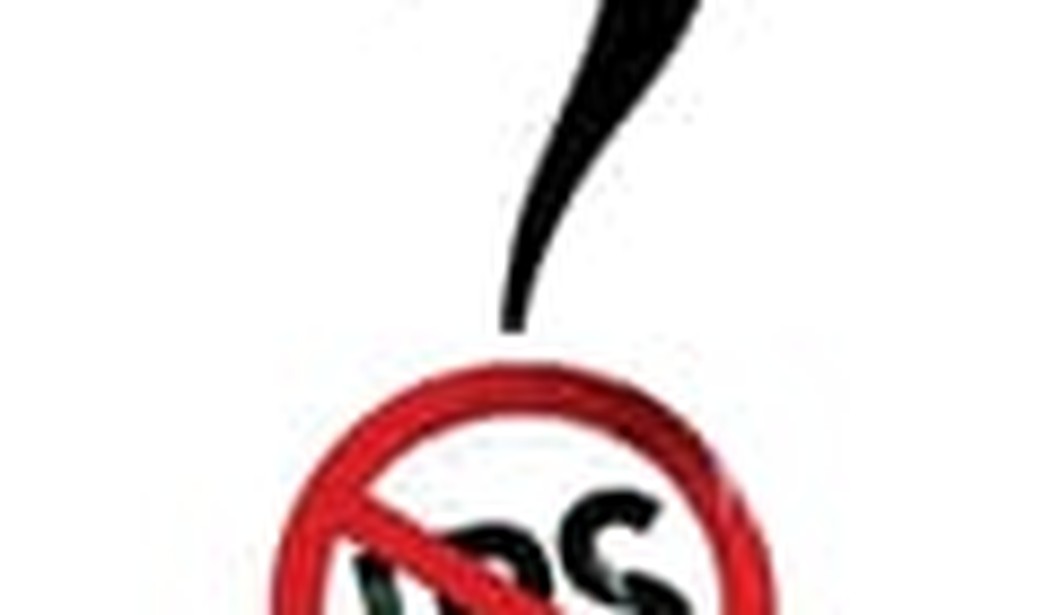As a Brit, I’ve been watching the back and forth about Republican presidential candidate Mike Huckabee’s Fair Tax with amazement. The idea is that the entire current Federal tax system is abolished replaced it with a 23% sales tax upon everything, this meaning we don’t the IRS and individual tax returns. The money is collected by the States and handed on so that there simply isn’t a Federal tax collection system at all.
As one who has run businesses under a variety of different tax systems, I see the crucial issue as one of compliance. How are you going to actually make people pay this 23% sales tax? Or more precisely, make sure that they don’t change their behavior so that they don’t pay it?
There is great support amongst economists for consumption taxes. We’ve got to tax something and we don’t want to tax the “good things” unnecessarily. Thus taxing work isn’t something we really want to do, nor is taxing savings. If we only tax that portion of their money that people actually spend then that’s a consumption tax. The way this is usually proposed is that we have something very like the IRS which we report to each year. We tell them our income, deduct what we’ve saved and then pay tax on the remainder: what we’ve spent, or our consumption. We also regard taking money out of savings as income that we have consumed. Think of it as having a giant IRA which holds all of your savings.
Now there are other forms of consumption tax possible but this is the type that the roster of economists the Fair Tax promoters quote in support usually mean. Of the other types of consumption tax we also have Value Added Tax (VAT) and a sales tax, the Fair Tax being one of those latter.
A VAT taxes the value added along the manufacturing chain: the miner pays it on his inputs, collects it on his ore, the smelter pays it to the miner and collects it when he sells the copper to the wire maker. The wire maker collects it when he sells to the computer manufacturer and so on all the way down the line to you, the final consumer, who pays it to the retailer but cannot collect it from anyone else.
Some argue that the Fair Tax is exactly the same as this: the amount paid by the final consumer is the same, all we have done is eliminated the taxation of the business to business transactions along the way. Quite so, and if the tax rate was 5%, or 10% even, this wouldn’t matter very much: indeed the straight sales tax method might even be more efficient.
But we’re not talking about a tax leveled at that rate: we’re talking about one at 23% (at a minimum). Even with a VAT as economist Bruce Bartlett points out, we start to see leakages at those sorts of rates. With a single point of sale tax we’ll see huge tax evasion. For what a VAT does is make each supplier down the chain keen to make sure that he gets the legal invoices showing that he’s paid VAT to his suppliers so that he can offset it against the VAT he collects from his customers, before he sends his check off to Mr. Taxman. The system becomes in a large manner (although you still conduct audits to go and look at a certain percentage of these invoices) self-policing. The Fair Tax does away with that entire process, making it much easier to evade.
Just as an example, here’s how under the Fair Tax, if you were criminally minded, you could make a great deal of money very quickly. Assume that we’re using the current sales tax process to collect it (as is assumed in the plan). You set up shop to sell electronic gewgaws. You’re using a stolen or faked social security number and identification so you have no credit record. When you set up the local sales tax administrators will ask you what your turnover is going to be like. You tell them and they then ask for a deposit against your first few months sales tax collected. Knowing how this system works you low-ball your likely takings and hand over, say, $15,000. Great, you now have a license to sell, you’ve got a short term lease on a shop (or more practically, a website) and you sell calculators, alarm clocks or something for a few days.
Now the trick is to move into something of much higher value: no one is going to be monitoring your business at this point (imagine the enforcement regime needed to monitor every website in the country!) and you go off and buy a couple of truck loads of high-end laptops, or plasma screens perhaps. Yes, you’ve got to invest to make money! Now you’re competing against WalMart, Staples, other big box retailers, but you’ve got a secret weapon. Each truck has 1,500 units on it (say), each unit has a (discounted) retail price of $2,000 before the Fair Tax (imagine). Everyone else is selling at $2,460 therefore, making perhaps $50 a box. But, clever scofflaw that you are, you’re going to sell them at $2,200, a more than 10% discount to everyone else. If you’ve got brand name equipment, with things like warranty being handled by the manufacturer, you’ll have no problems in selling out of your stock in a short period of time. You collect the money, skip on paying the Fair Tax and you’ve got $600,000 profit. Sure, you’ve left $15,000 as the surety and you’ve got to go buy some new fake ID, but you can be back in business again in a few weeks somewhere else.
There’s really only three ways to stop activity like this. The first is to make the sales tax itself so low that the temptation to do this just isn’t there. As we’re trying to fund the entire Federal Government here we can’t do that. The second is to make it a VAT (and for reasons I don’t understand, the Fair Tax folks don’t want to do that) which again reduces the incentive to do this: you’ve paid your supplier the VAT on the value of his sale to you so the amount you can steal is again drastically reduced, making it not worth the candle.
The third is what Laurence Kotlikoff, a Fair Tax defender, seems to propose:
First, the vast majority of retail sales occur in major retail outlets, like WalMart. Second, we’ll have vastly fewer taxpaying entities (14 million rather than more than 100 million) on which to focus our enforcement efforts. Third, we’ll have hundreds of thousands of otherwise unemployed IRS agents, accountants, and tax attorneys to enlist to enforce a single tax. Fourth, we can always compel firms to report, via 1099-type forms, their sales to other firms. This will provide the same records that arise under a VAT. Fifth, the government can stipulate that all retail sellers provide buyers with a written receipt, regardless of whether the transaction is or is not in cash, specifying that the FairTax has been paid.
One and two fail because while we may have that structure of retail sales now we most certainly won’t have that structure if we change the tax system so radically. Unless every roadside watermelon stand has to register we’ve just given them a 23% price advantage against the supermarkets: unless every farmers’ market stall does ditto. This might be a nice way to encourage more local commerce but isn’t what the plan’s promoters are really looking for. We’ll have an explosion of small scale sellers trying to work under the radar of the system. One, two and five fail because we are talking about the criminal possibilities of cheating the system. If we’re going to do four why not actually make it a VAT, so as to get not just the form filling but the economic incentives aligned as well?
But the most laughable suggestion is the third. I’ve always been under the impression that the aim here is to abolish the IRS. So what we’re in fact going to do is abolish the IRS and then hire everyone back again as the FTS (Fair Tax Service)? And the FTS will have to be vastly more intrusive than the IRS ever has been: to beat my hypothetical retailing scam they would need to a) monitor every retail outlet and b) every wholesale order by such outlets. We’re not going to get rid of intrusive taxmen this way, we’re going to be drowning in them.
The final defense of the Fair Tax on the compliance issue is given by Kotlikoff again:
The Fair Tax is, I should add, equivalent to a VAT except for excluding taxation of business-to-business sales, which yields, under the VAT, no net revenue. Virtually every developed country with the exception of the U.S. has a VAT. Since the Fair Tax is a VAT, except for its treatment of businesses transactions and its inclusion of a rebate, no one should view the FairTax with alarm. Collecting revenues by taxing retail sales is a tried and true practice.
A VAT is indeed a tried and true system of taxing retail sales. The things that make a VAT different, the taxation of business-to-business sales, are what make them work as they do. So, yes, the Fair Tax is indeed the same as a VAT except for those things which make VATs work.
Somehow, the argument that it’s exactly the same but we’ve taken out the bit that stops people from evading it isn’t all that strong, to my mind at least, an argument in favour of this particular tax change.
Tim Worstall is an Englishman who has failed at many things. Odd bits and pieces of his writing have been known to turn up in The Times, the book pages of the Daily Telegraph and the Philadelphia Inquirer, he’s been a long term contributor to TCS Daily and also blogs for The Business and the Adam Smith Institute.









Join the conversation as a VIP Member